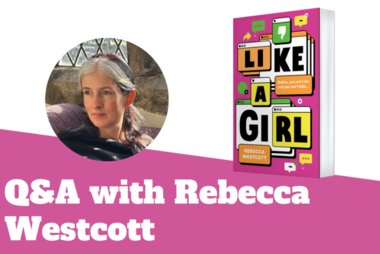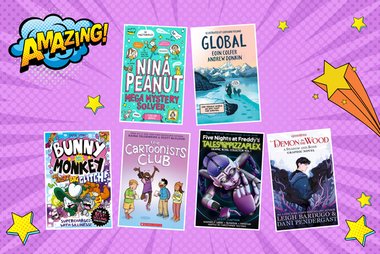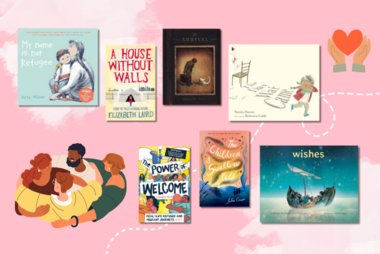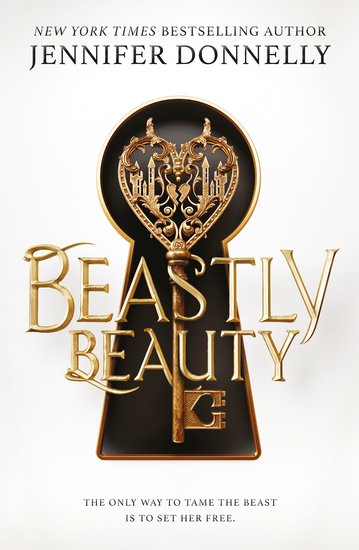Twisted fairytales: A Q&A with Jennifer Donnelly
We chat to New York Times bestselling, Carnegie-award-winning author Jennifer Donnelly about writing retellings, the power of fairytales and her brand new YA novel Beastly Beauty.

This isn’t your first time writing a Beauty and the Beast retelling! What made you want to return to the story? What new elements did you want to explore?
Beauty and the Beast is a deep, rich, complicated fairytale, and I’ve always wanted to flip its script and see what happens. In the classic version, the beast calls the shots. He rages and yells and breaks things and takes prisoners. And Beauty has to accommodate him. She has to work to understand him, and ultimately help him reveal his better self. Well, enough of that. I wanted to reverse the story’s power dynamic and write the Beast as a woman and Beauty as a man. So I did, and I ended up with two difficult, flawed creatures who are both angry and wary and in a good deal of emotional pain, and then I watched them as they worked upon each other, got under each other’s skin, or fur, to reveal—and hopefully heal—the wounds beneath that pain.
Arabella is, of course, a literal “beast” at times in the novel, but also a metaphor for what turns women into outsiders in our society. What do you think makes a woman “beastly” today?
Sadly, many of the same things that have always made women “beastly” are still making us beastly today. For starters, the endless, debilitating focus on a woman’s appearance rather than on her abilities or accomplishments. And also the pressure on women to play down traits that have been traditionally seen as masculine – like competitiveness, pride, and ambition.
I think it’s interesting how so many beastly terms have been, and still are, applied to women. Like shrew. Sow. Cow. Catty. Vixen. Nag. Bitch. And one of the many things that I love about Arabella, the beast in my story, is how even though she desperately wants to break the curse that imprisons her, a small, contradictory part of her revels in being a beast. She relishes the physical power. She likes the forest, and running through snow at night, or crashing through an icy creek. She loves to hunt and bring down a stag, or snack on a chipmunk.
You have an extraordinary ability to take familiar tales and make them wholly your own. What’s your process like when you start a retelling?
Thank you! For me, the process is all about taking this full-on, headlong, running jump straight back into my childhood, to the first time I heard these stories, and then taking a look around fairytaleland and demanding some answers.
For Stepsister, I wanted to find out why the stepsisters were called ugly. Who said so? And what did the stepsisters themselves think about that. Were they ugly because they had big noses and big feet, like the pictures of them in my Little Golden Book? And maybe they were kind of awkward and not always demonstrating the best manners. All of which certainly described me at five, and sometimes still does.
Or take Snow White, the basis for Poisoned. To me, the queen and the witch and the apple were scary in that story, but the mirror was scarier. I wanted to know who was in there. Who made him the boss? What did he want from the queen? And from us?
For Beastly Beauty, I wanted to see what the consequences might be for a young woman who has had to deny her desires and dreams and emotions, and what might happen when if those emotions finally burst free.
What do you want readers to take away from Beastly Beauty?
Oh, so many things. I want them to take away a huge love for Arabella and Beau, and their love story. I want them to take the three little sisters—Hope, Faith and Love—into their hearts. And I want them to take away an abiding love of risotto, vichyssoise, and chocolate torte—all of which appear in one of my favorite scenes in the book!
But good food aside for a moment, I very much want them to take away the courage one needs to banish Lady Espidra, the most fearsome member of Arabella’s sinister court. She is Despair personified and I want them to swear to never let her into their hearts.
Like Arabella, we’re all flawed. We make mistakes, and we become subject to our darker emotions—like jealousy or guilt or anger, and we all have to learn that these emotions, however frightening they are, belong to us, that they serve an important purpose in our lives.
But Despair serves no purpose. It worms its way in when we are told, just like Arabella is told, that who we and what we want, is wrong.
Beastly Beauty is a story about two damaged people learning to love and forgive, but it’s also about how we all get trapped in prisons of our own making – and how we need to learn how to tear down walls and build bridges if we’re ever going to escape from those prisons.
And that’s the most important thing I want readers to take away from Beastly Beauty—that we all ultimately hold the key to our freedom and happiness in our own hands, and that no Beast or Beauty or King or Princess can save us or doom us because we, ourselves, each and every one of us – we are the ones we’ve been waiting for.
Why do you think fairytales have such staying power?
I think fairytales endure because they are trapdoors into the human psyche. They’ve been around for centuries and exist across all cultures. They were a way we human beings explained ourselves to ourselves long before Freud came along and tried to do the job, and they still speak to something very primal inside us, to our fears and our dreams, and to our deep hunger for things like truth and justice, kindness and love.
Beastly Beauty has such a specific sense of place. Did you do any research to bring Beau and Arabella’s world to life?
I did. I took a trip to beautiful Barcelona and to the Pyrenees mountain range, at the border between Spain and France, and where Arabella’s castle is located in the story. I visited ancient towns, hiked in the hills that Beau’s gang would have crossed, and watched the most amazing moonrise that turned the snow-covered peaks pink. I sampled tapas, Catalan sweets from the charming Dolceria de la Colmena in Barcelona, and maybe a churro or two – all in the name of research, of course. Hard work, but somebody’s got to do it.
What part of the writing process gets easier with each book? What parts are always challenging?
I wish the writing process would get easier for me, but it never does. Each book is its own monster, and each one feels like a fight to the death. I must love battling these monsters, though, because I still love running full force into the dark forest of a new story, and staggering out the other side a year later, bit worse for the wear, but with a first draft in my hands.
Which character was easier for you to write, Beau or Arabella?
They were actually both challenging because both are broken, guarded creatures who did not easily give up their secrets or reveal their hearts. Which meant I had to work hard to earn their trust and get them to tell me their stories. I find that’s the way it goes with most of my characters – if I try to tell them what to think and say and do, they get fed up and refuse to speak to me, but if I step back, ask questions, and listen carefully to the answers, they open up.
What fairytale would you never want to retell?
Hansel and Gretel is daunting. That one has always troubled me. Not because of the witch—she’s behaving pretty much as we expect a fearsome witch to behave, but because of the children’s parents. The father abandons his children in the woods because their stepmother tells him to—that’s the true heart of darkness of that story, and it’s a tough one. But never say never…

Beastly Beauty
From New York Times bestselling, Carnegie-award-winning author Jennifer Donnelly comes a revolutionary, gender-swapped retelling of Beauty and the Beast that will forever change how you think about beauty, power, and what it really means to follow your heart.
Similar Posts
-

A Q&A with Rebecca Westcott, author of Like a Girl
We spoke to author Rebecca Westcott who answered questions about her latest teen novel, Like a Girl.
-

Graphic Novels to Hook Young Readers
We’ve rounded up a selection of fun, action-packed graphic novels that make reading feel like an adventure.
-

Children’s Books to Celebrate Refugee Week
To celebrate Refugee Week (16th – 22nd June 2025), we’ve put together a list of heartfelt children’s books that explore themes of displacement, belonging, hope, and identity.

